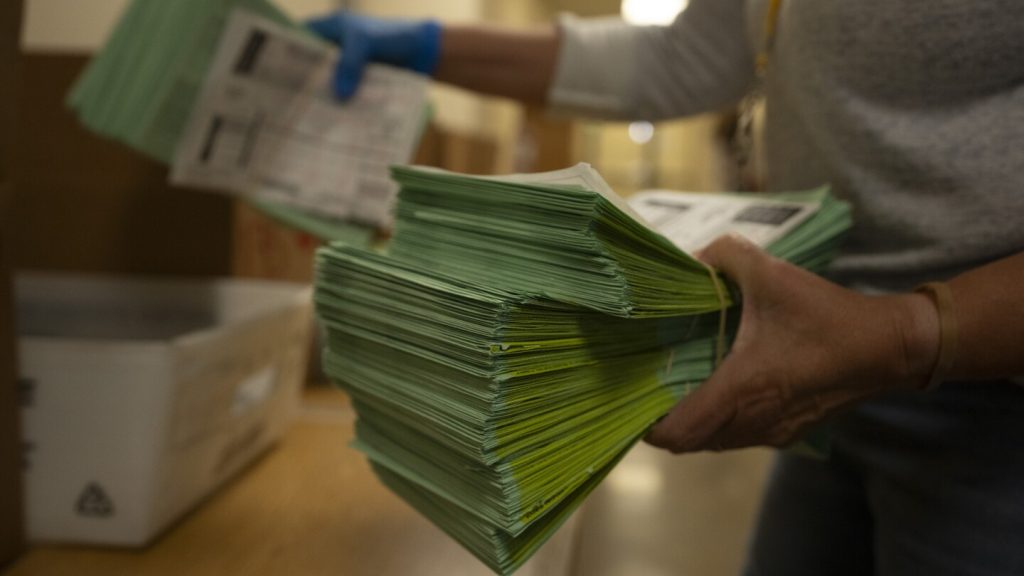Arizona’s Maricopa County is facing a wave of threats and misinformation surrounding elections, prompting the implementation of stringent security measures to protect election workers and tabulating machines. The false claims of voter fraud and machine problems have led to protests, death threats, and the resignation of top election officials across the state. With the looming presidential rematch and Senate race, Arizona is a target for election meddlers and other bad actors attempting to hack or disable electronic systems. Republican Stephen Richer and Democrat Adrian Fontes, the top election officials, are taking aggressive steps to combat disinformation, rebuild trust with voters, and address attacks as the November general election approaches.
Fontes, a Marine Corps veteran, has implemented tactics like deploying “tiger teams” to troubleshoot problems, hosting simulations to prepare for disinformation, and creating an information security team to defend against cyberattacks and gather intelligence on threats. The information security team includes an analyst dedicated to monitoring the internet for disinformation and threats, a unique position in statewide election offices. However, some Arizonans have expressed concerns about privacy and government surveillance regarding monitoring for falsehoods. Fontes defends the surveillance as necessary to combat those seeking to undermine democracy and emphasizes that only egregious posts are reported to social media platforms.
With the rise of disinformation and threats against election workers, chief information security officer Michael Moore highlights the responsibility of those spreading misinformation for inciting action among individuals. Fontes and Richer aim to steer the focus back to issues rather than mistrust in elections, emphasizing the importance of public confidence and transparency. Fontes is testing a system for voters to receive text messages about their ballots, while Richer is actively engaging with voters through live video sessions and tours of the tabulation center. Efforts to rebuild faith in elections include initiatives to address public concerns and provide transparency, although challenges persist in combating misinformation and doubts among voters.
Despite efforts to counter false claims and enhance transparency, public confidence in the integrity of elections remains a challenge. In a county where election lies persist despite audits confirming accurate results, Richer has faced pushback on social media over minor issues like mailed ballots to address doubts about reliability. Despite his efforts to explain and provide clarity, skepticism continues to prevail among some individuals. Richer acknowledges the difficulty in changing minds and acknowledges the impact of misinformation on public perception of elections. As the November general election approaches, Arizona’s election officials face an uphill battle in combatting disinformation, rebuilding trust with voters, and ensuring the integrity of the electoral process.















